Iranian Cleric Threatens Physical Violence Against Future Demonstrators
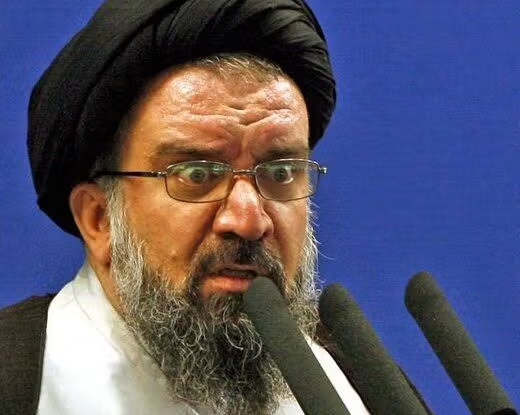
A member of the Iranian Assembly of Experts issued a stern threat against any future protestors, saying that they would be met with forceful suppression.

A member of the Iranian Assembly of Experts issued a stern threat against any future protestors, saying that they would be met with forceful suppression.
Ahmad Khatami's remarks were made in response to last year's nationwide demonstrations after the death of Mahsa Amini in police custody, which he said were a "failure".
Addressing the Islamic Revolutionary Guard Corps (IRGC) forces and police units on Monday, Khatami emphasized the imperative of safeguarding the Islamic Republic. “Preserving the Islamic Republic is one of our obligations,” he said, as well as praising the Basij militia forces for their actions in the previous protests. "Basij militia forces were persecuted during these events and sacrificed their lives so that the Islamic Republic would pass through this stage," Khatami said.
However, Khatami's statements sharply contrast with reports from independent media outlets and human rights organizations saying that Basij forces, in particular, were responsible for violent aggression against the protests. The Women, Life, Freedom protests sparked by the death of Mahsa Amini, were met with severe and deadly oppression by the security and military forces of the Islamic Republic.
Although a precise tally of casualties is unclear, some media sources have verified and disclosed the identities of 373 individuals who lost their lives. Meanwhile, human rights entities such as the Iran Human Rights Organization and the US-based Human Rights Activists News Agency (HRANA) have placed the estimated death toll at over 500.
In his address, Ahmad Khatami summarized the various challenges that have beset the Islamic Republic over the past four decades. He remarked, "Many dangers have threatened the Islamic Republic during the past four decades and many of these dangers have been the danger of overthrow.”
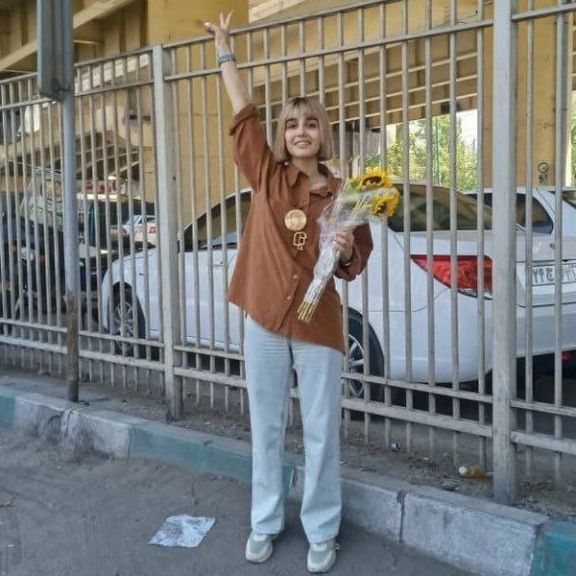
Journalist Nazila Maroufian, who was released on bail just days ago, has been arrested again and detained in Qarchak prison.
The journalist, who is also a student at Allameh Tabatabai University in Tehran, was arrested in July following a summons to the Prosecutor's Office at Evin prison.
After being released on bail on Sunday, she went to a police station to retrieve her mobile phone and was allegedly attacked by law enforcement officers. A witness reported that an officer struck Maroufian on the back of her head. Maroufian’s mother, who was with her, compared her daughter's treatment to the tragic case of Mahsa Amini, who died while in the custody of the morality police. The officer replied, "Yes, just like we killed her, we will kill this one as well."
Both mother and daughter were arrested and detained although Maroufian's mother was later released. The journalist herself was transferred to a quarantine ward within Qarchak prison, south of Tehran, based on a temporary arrest warrant.
Her initial arrest came after security agents from the Ministry of Intelligence raided Maroufian's home and summoned her to the prosecutor's office.
Maroufian was previously employed by the moderate Iranian news website Rouydad 24, which had been a reliable source of news about developments in Iran. In March, the Iranian regime temporarily blocked access to the website after it published an interview with Amjad Amini, the father of Mahsa (Zina) Amini.
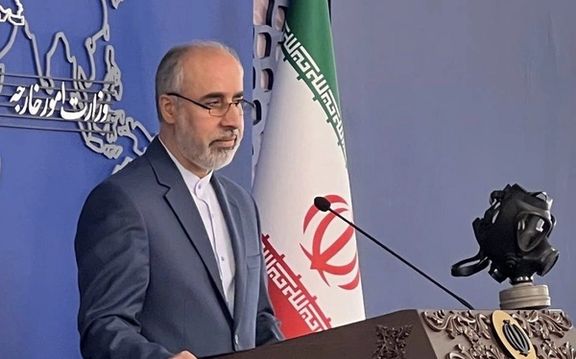
The Ministry of Foreign Affairs in Iran refuses to disclose details of the recent Tehran-Washington agreement involving prisoner release and access to frozen funds.
Foreign Ministry Spokesman Nasser Kanaani said that disclosing specifics to the media would not be "helpful" given the current circumstances.
During a press conference on Monday, Kanani said, "The details of this understanding in the media are not helpful at this point in time." The withholding of information comes in the face of increasing criticism and protests against the agreement, both within Iran and internationally, including in the United States and Israel.
However, Kanaani said that “the Iranian government had prioritized the release of its citizens unjustly detained by the American government, as well as the partial release of Iran's blocked assets, which had been frozen due to what Iran contends is illegal pressure by the United States.”
Notably absent from Kanani's comments was any mention of the release of American hostages imprisoned in Iran. When questioned about the timeline for the agreement's implementation, Kanani responded, "We negotiated with the American government through mediation, and a time frame has been set for the realization of both issues."
Refuting reports of $23 billion in released Iranian assets under the agreement, with $5 billion from Japan, Kanani stated, "I do not confirm either the $5 billion nor the other number you mentioned."
Iran's frozen funds are primarily held in banks across South Korea, Iraq, Japan, China, and India, originating from pre-2018 oil transactions prior to the United States' withdrawal from the JCPOA and subsequent sanctions.
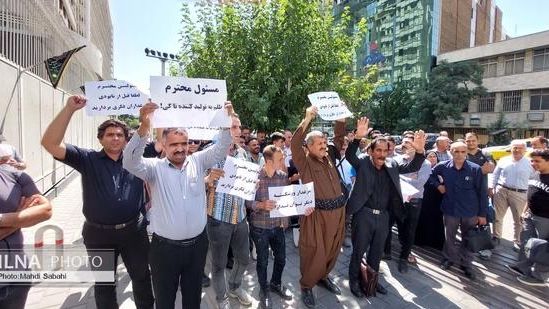
Iranian poultry farmers gathered outside the Ministry of Agriculture on Saturday to protest government's failure to deliver essential animal feed.
Despite having paid for soybean and corn inputs over a year ago, the group of angry farmers from poultry production units in Qazvin province, have not received their orders from the Ministry of Agriculture, nor have they been reimbursed. Their accrued losses over this period amount to 100,000 billion rials ($200 million).
The protestors held placards berating the Ministry for placing them in a crippling financial situation and that they had reached breaking point.
They also raised additional concerns at the practice of government agencies buying their produced poultry at slashed prices using coercive measures and threats.
Supply of livestock and poultry production inputs is a systemic and ongoing issue. It has been more than a year since subsidies were reduced and cuts were made to the allocation of discounted foreign currency to essential goods importers. This has resulted in a disturbing cycle of shortages, delivery delays, and outright unavailability of necessary production inputs, negatively impacting the livelihoods of the country's livestock and poultry producers.
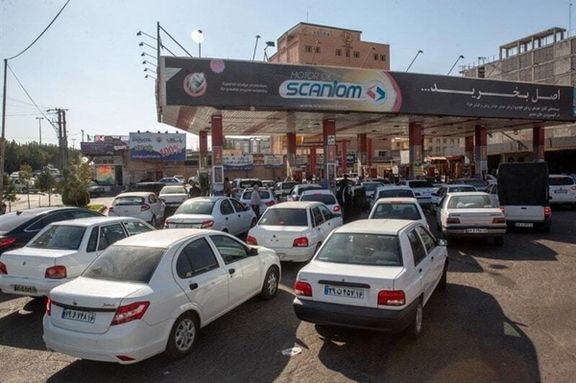
In response to a large gap between gasoline production and consumption, Iran has scaled back its distribution and turned to using its strategic reserves.
According to Iran International sources, the Iranian Oil Ministry has taken the step citing the need to curb smuggling. The other option would be to raise prices but the regime is worried that it could trigger protests across the nation.
The National Iranian Oil Refining and Distribution Company (NIORDC), a department within the ministry, has released around 900 million liters of strategic gasoline reserves into the market in an effort to make up the deficit. An informed source disclosed that the country's reserves now stand at approximately 500 million liters, barely enough for more than four days in the event of any production-related disruptions.
The source added that there are challenges for gasoline imports both domestically and internationally, leading to a consistent reduction of gasoline distribution in various regions of the country.
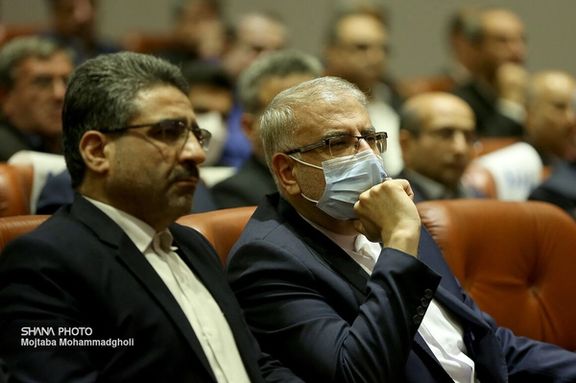
Both Oil Minister Javad Owji and NIORDC Manager Ali-Akbar Nejadali have confirmed the supply restriction. Nejadali explained that in light of increased summer travel and to ensure a steady distribution and prevent station closures, a new measure has been introduced, limiting each refueling session to only 30 to 40 liters.
Iran International reported in late July that the government has postponed tighter fuel rationing implementation due to the approaching anniversary of last year's anti-regime protests in September.
Earlier in the month, NIORDC deputy manager Ali Ziyar said that the average daily consumption of gasoline has hit 124 million liters, indicating a 20-percent increase compared with the previous year. “In recent years, the maximum annual growth in gasoline consumption has been seven percent, but this year we have suddenly experienced a 20 percent increase in consumption,” he said, tacitly acknowledging that a large amount of fuel is being smuggled out of the country. He also stated that the daily gap between production and consumption is 17 million liters.
The government, which controls one of the world's largest oil and gas reserves, sells gasoline at extremely low, subsidized prices, charging less than 10 US cents per gallon, or less than 3 cents per liter, while neighboring oil-producers have much higher prices, in line with international market rates. Second only to Venezuela, Iran has the world’s cheapest gasoline price. The extremely low fuel prices leads to small and large-scale smuggling to neighboring countries.
Back in March, Iran International unveiled a classified document detailing a late February meeting at the presidential office. This document revealed that dangerously low levels of strategic fuel reserves forced major refinery repairs to be postponed to maximize short-term production. Officials were advised to avoid any public statements or suggestions that could be construed as intentions to raise current fuel prices, fearing it might ignite public discontent.
One of the main reasons that the Islamic Republic has not managed to increase prices in the midst of the current economic crisis is because it faced the worst wave of unrest in years since September 2022. A fuel price hike would risk fanning the flames of unrest further. For years there has been talk of adjusting prices, but since 2018 Iran’s currency has dropped 12-fold and any increase needs to be huge to be meaningful in US dollars.
In November 2019, a government decision to increase fuel prices by 50–200 percent triggered a cycle of protests and unrest across the country that lasted for over two weeks. Regime forces killed at least 1,500 civilians, in the worst such crackdown in Iran.
While the country is hugely dependent on the revenues from crude oil exports, due to sanctions and mismanagement, it has failed to modernize the energy sector, with power shortages persisting most of the year. Systemic corruption also further cripples the weak system. The situation has been grave in recent years but since the administration of Ebrahim Raisi assumed office in 2021, the entire energy management system is going haywire, drawing backlash from not only the public but even regime insiders.
In recent days, rumors of an impending gasoline price increase have once again ignited, prompting a rush of people to gas stations.
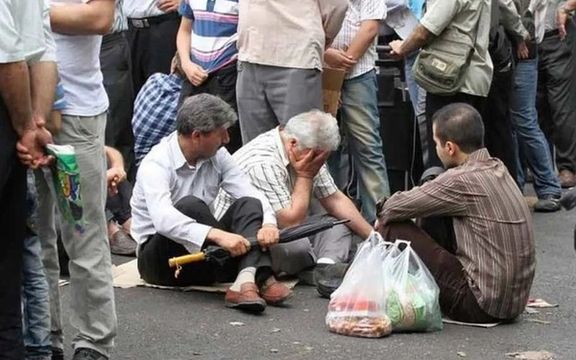
Not only is Iran's economic situation critical, but it is also ailing in terms of politics, culture, and ethics, a leading conservative newspaper stated in an editorial.
Pointing to "various forms of corruption in the government's management system," the Jomhuriye Eslami (Islamic Republic) daily recommended that government officials heed well-wishers and refrain from attributing "all of the country's problems to the enemies."
The newspaper accused government officials of isolating themselves within a bubble, entangled in illusions detached from societal realities. The daily also recommended that officials break free from this isolating bubble to reengage with the broader society.
Jomhouri Eslami stated that President Ebrahim Raisi's mandate aimed to rectify the corruption and deviations from principles during the populist government of former President Mahmoud Ahmadinejad (2005-2013). However, not only has this objective gone unmet, but the public also learns of fresh corruption cases within the government on a daily basis.
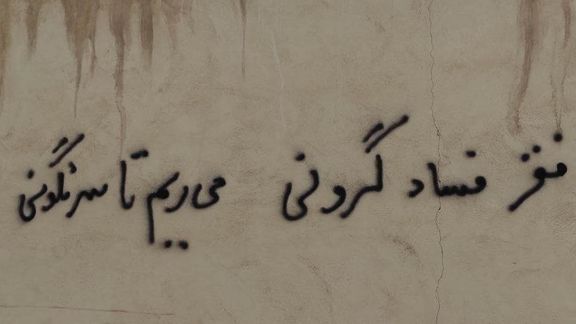
The conservative publication argued that given the prevailing circumstances, certain individuals become entangled in financial corruption due to their struggle to meet basic needs. Conversely, others succumb to political, cultural, and ethical deviations due to their excessive wealth.
However, the paper did not underscore the fact that the opaque political system, built upon loyalty to the regime, allows officials to engage in corruption and amass personal wealth.
It subsequently cited the recent "sex scandals involving certain prominent cultural officials in the country" and the "involvement of other officials in bribery, embezzlement, and money laundering," asserting that these incidents signify the nation's deteriorating state. The publication added that "last year, around 120 officials were apprehended for financial corruption, and halfway through this year, the tally has already reached 144."
In July, there was widespread outrage among Iranians as successive videos surfaced, revealing officials responsible for upholding moral standards and religious norms engaging in same-sex activities, a grave violation under Sharia law.
The daily further stated that these figures are alarming for a government that claims to be Islamic.
Meanwhile, Mostafa Derayati, a leading member of the reformist Unity of Nation Party told Rouydad24 website that "The government has ostracized the country's most capable officials and has handed over the affairs of the state to inefficient individuals."
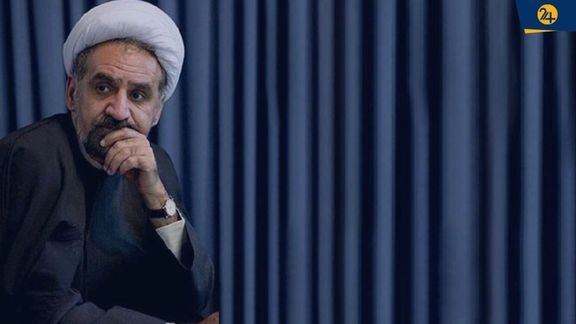
Adding that the current presidential administration is filled with inefficient officials, Derayati argued that capable figures were pushed into isolation when the hardliner Guardian Council disqualified tens of moderate and reformist candidates in the 2020 parliamentary and the 2021 presidential elections.
"It was evident that the governance of the nation was transitioning to a group of individuals lacking analytical acumen and the capacity to address the country's challenges," he remarked.
Derayati, a reformist member of the Islamic Studies Center, reiterated that today, even those who supported President Ebrahim Raisi in the 2021 elections are criticizing him. "In fact, the Raisi administration's performance has been so full of mistakes during the past two years that it is really hard to defend his government." He added, "We have handed over the affairs of the state to a government whose president has no executive experience. It was clear from the very beginning that he knew very little about management."
Another critic, lawmaker Ahmad Alirezabeigi, asserted that the statements made by Raisi's aides indicate either a lack of a comprehensive strategy for governing the state or, even if such a strategy exists, they lack the financial resources required to implement their envisioned objectives.